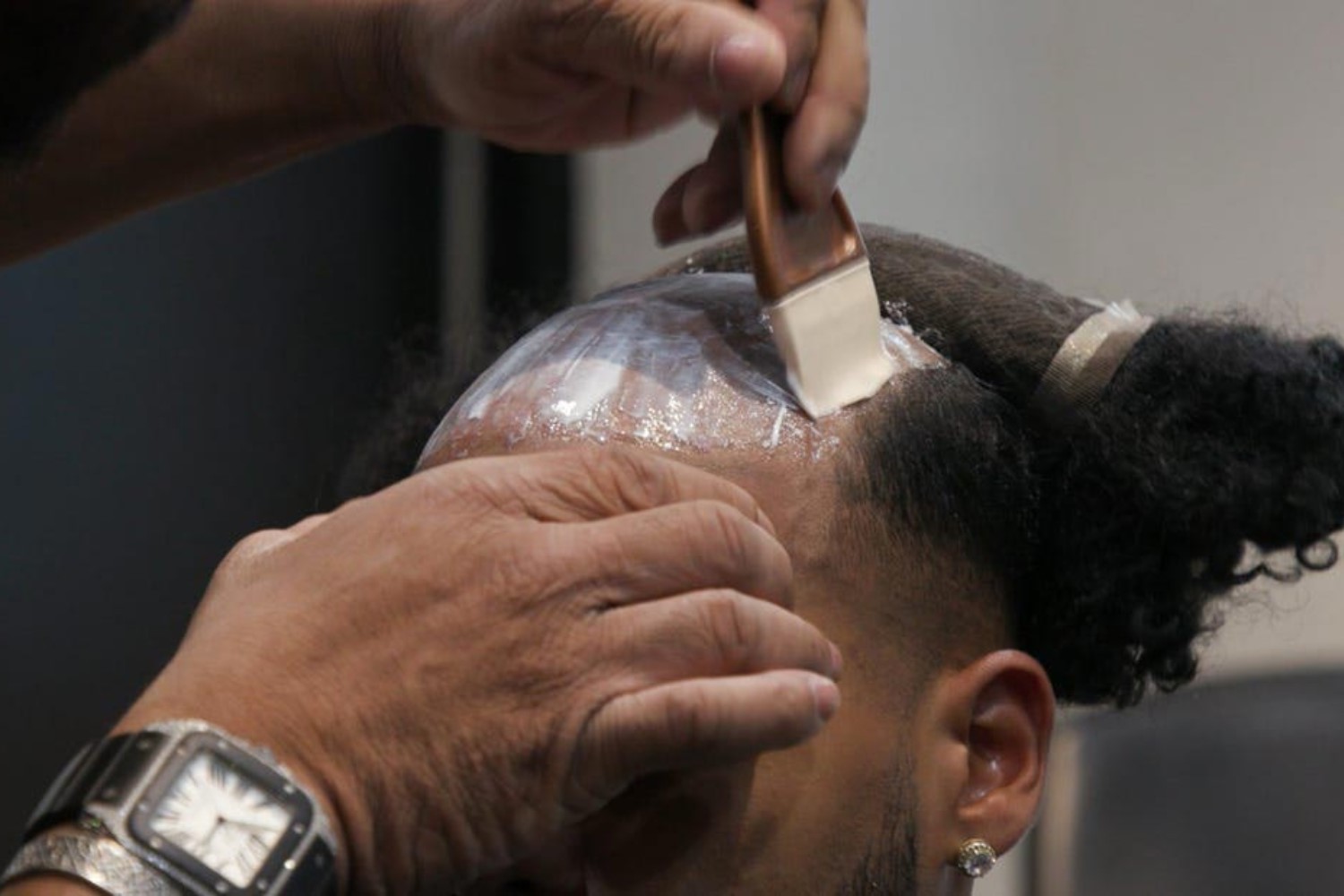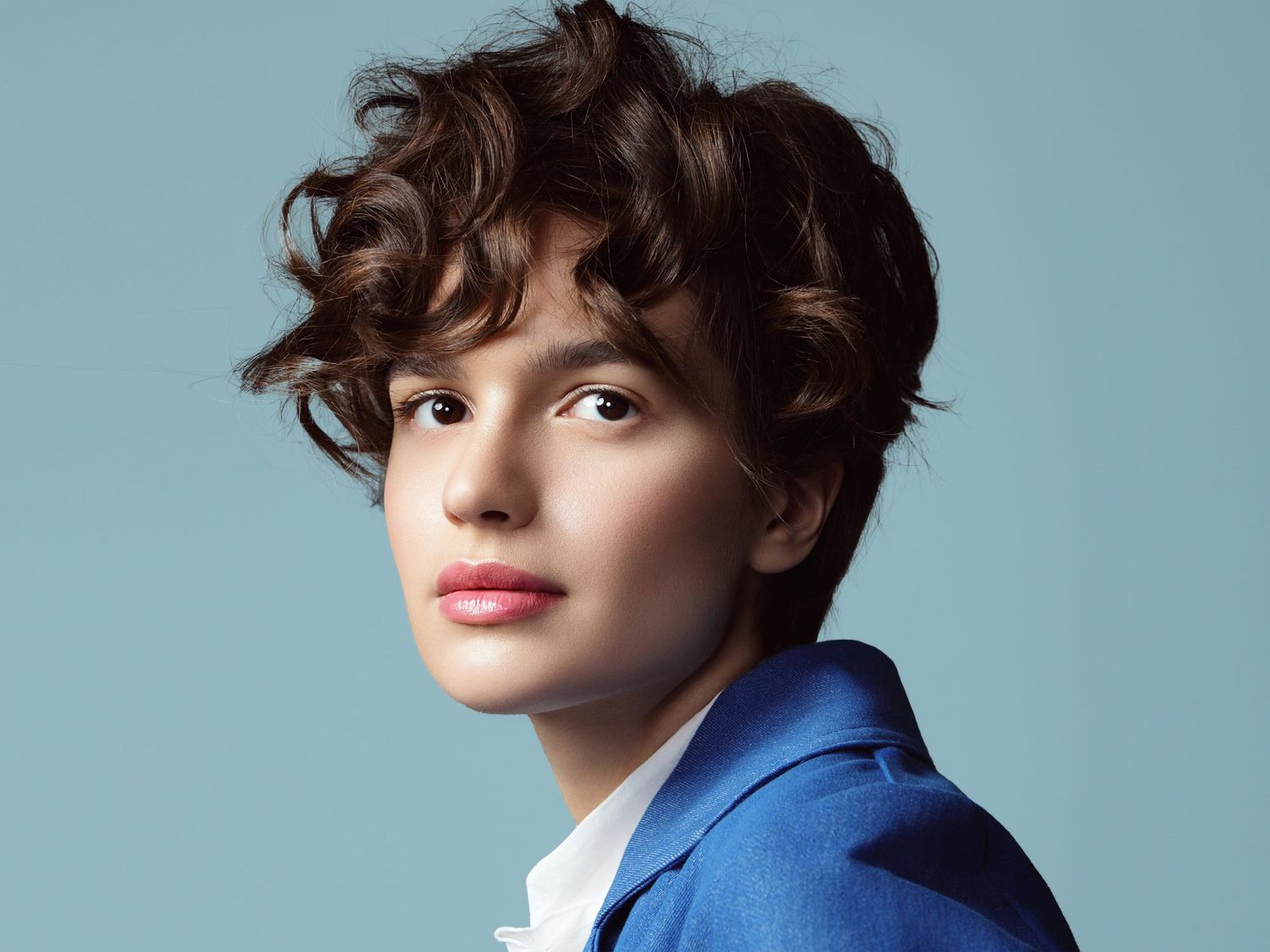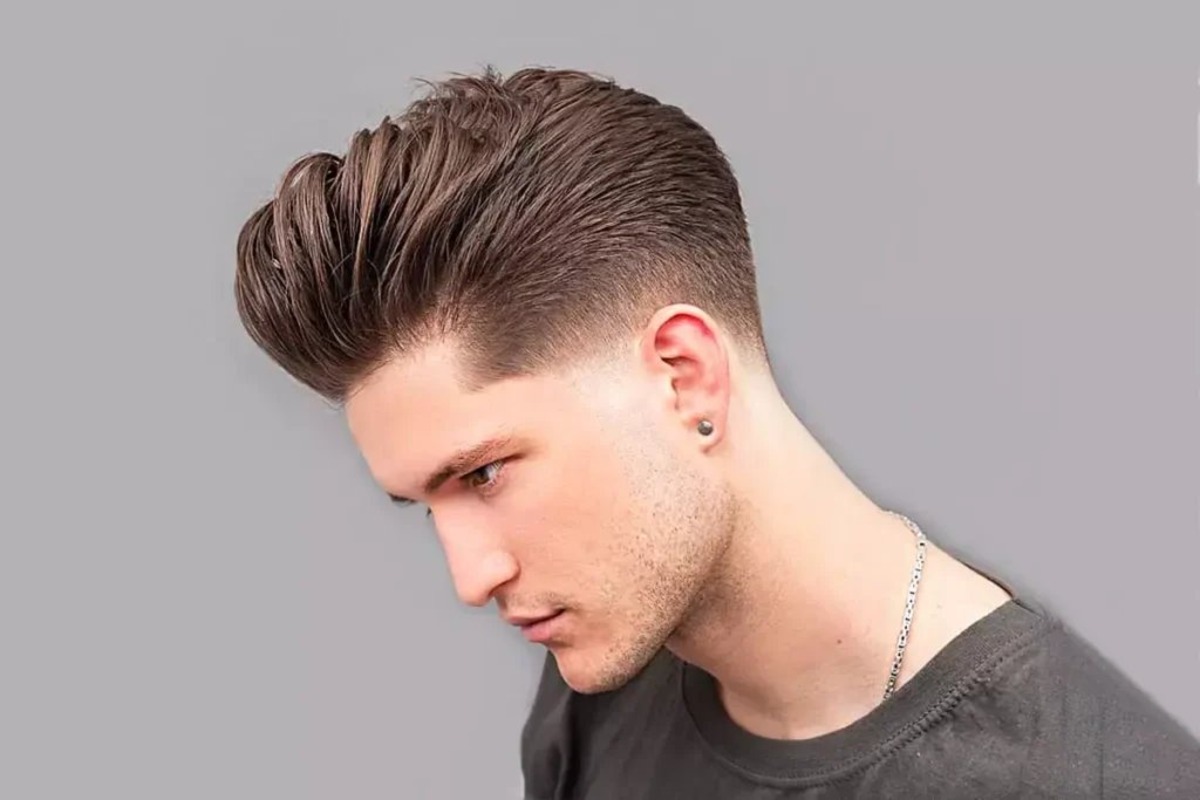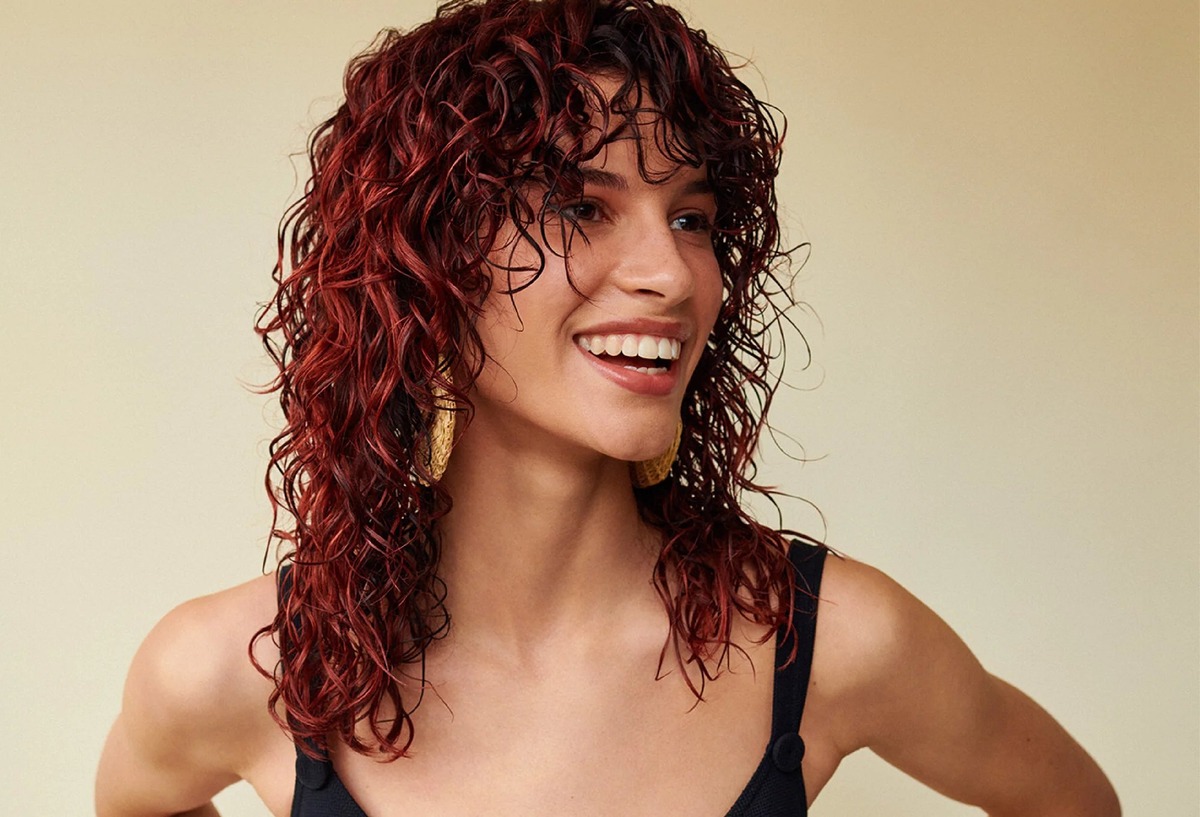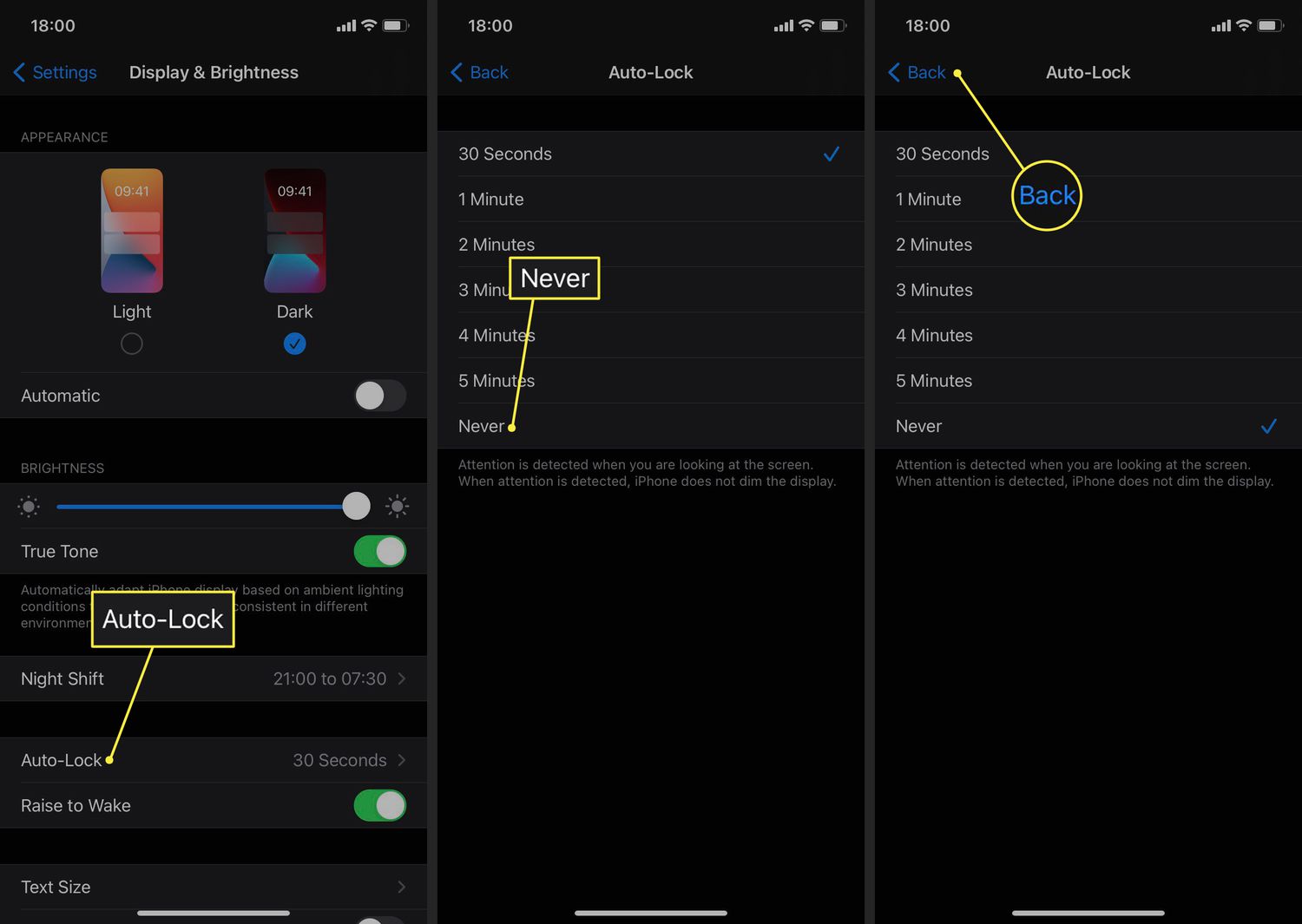

Lifestyle
How To Keep Curly Hair From Frizzing
Published: March 3, 2024
Discover effective lifestyle tips to prevent frizz and maintain beautiful, smooth curls. Learn how to keep curly hair from frizzing with our expert advice.
(Many of the links in this article redirect to a specific reviewed product. Your purchase of these products through affiliate links helps to generate commission for Noodls.com, at no extra cost. Learn more)
Table of Contents
Introduction
Curly hair is a beautiful and unique hair type that requires special care and attention to maintain its natural luster and bounce. However, one of the most common challenges that individuals with curly hair face is frizz. Dealing with frizz can be frustrating, especially when it seems like no amount of product or styling can keep those unruly strands in check. Whether you have natural curls or you've embraced the curly hair trend, understanding how to combat frizz is essential for achieving the gorgeous, defined curls you desire.
In this comprehensive guide, we will delve into the intricacies of curly hair and explore the various factors that contribute to frizz. From environmental influences to hair care practices, we'll uncover the root causes of frizz and provide valuable insights into preventing and managing it effectively. Additionally, we'll highlight some of the best products specifically designed to tame frizz and enhance the natural beauty of curly hair.
By the end of this article, you'll be equipped with the knowledge and strategies needed to keep your curly hair looking fabulous and frizz-free. So, if you're ready to bid farewell to frizzy hair days and embrace the full potential of your curls, let's embark on this journey to discover the secrets of maintaining gorgeous, frizz-free curly hair.
Read more: How To Draw Curly Hair
Understanding Curly Hair
Curly hair is characterized by its unique texture and shape, which sets it apart from straight or wavy hair types. The distinctive spiral or coiled pattern of curly hair is a result of the hair follicle's asymmetrical shape. Unlike straight hair, which grows out of a round follicle, and wavy hair, which emerges from an oval-shaped follicle, curly hair grows from a flat or kidney-shaped follicle. This irregular shape causes the hair to bend as it grows, resulting in the formation of curls.
Furthermore, curly hair tends to be drier than straight hair due to its spiral structure, which makes it difficult for natural oils produced by the scalp to travel down the length of the hair shaft. As a result, individuals with curly hair often experience challenges related to moisture retention, leading to frizz, tangles, and overall lack of manageability.
It's important to note that curly hair comes in various types, ranging from loose, wavy curls to tight, coiled curls. The classification of curly hair types, as defined by the widely recognized Andre Walker Hair Typing System, includes Type 2 (wavy), Type 3 (curly), and Type 4 (coily or kinky) hair. Each type has its own unique characteristics and care requirements, making it essential to understand the specific needs of your curly hair type in order to effectively manage and maintain its health and appearance.
In addition to its physical attributes, curly hair is also known for its versatility and ability to hold various styles, from voluminous afros to defined ringlets. However, this versatility also presents challenges, as curly hair is more prone to frizz, especially in humid or dry environments. Understanding the nature of curly hair is crucial for implementing the right care and styling techniques to enhance its natural beauty and minimize frizz.
By gaining a deeper understanding of the structure and characteristics of curly hair, individuals can make informed decisions regarding hair care practices, product selection, and styling methods that cater to the specific needs of their curls. This knowledge serves as the foundation for effectively addressing frizz and maintaining healthy, vibrant curly hair.
Understanding the intricacies of curly hair is the first step toward embracing and celebrating its unique beauty, and it lays the groundwork for implementing targeted strategies to keep frizz at bay and unlock the full potential of curly locks.
Causes of Frizz in Curly Hair
Frizz is a common concern for individuals with curly hair, and understanding the underlying causes is essential for effectively addressing this issue. Several factors contribute to the development of frizz in curly hair, ranging from environmental influences to hair care practices. By identifying these root causes, individuals can implement targeted strategies to minimize frizz and maintain the natural beauty of their curls.
-
Lack of Moisture: Curly hair has a natural tendency to be drier than straight hair due to its spiral structure, which makes it challenging for the scalp's natural oils to coat the entire length of the hair. When curly hair becomes dehydrated, the outer layer of the hair shaft, known as the cuticle, can become rough and raised, leading to frizz. Insufficient moisture levels result in unruly, flyaway strands that detract from the defined, smooth appearance of curls.
-
Humidity and Weather Conditions: Humid environments can wreak havoc on curly hair, causing the hair strands to absorb excess moisture from the air. This influx of moisture disrupts the hair's natural pattern, leading to puffiness and frizz. Conversely, dry weather conditions can also deplete the hair of essential moisture, resulting in frizz and a lack of definition. The fluctuating effects of weather on curly hair make it particularly susceptible to frizz, requiring proactive measures to combat these external influences.
-
Damage and Breakage: Curly hair is prone to damage and breakage, especially when subjected to harsh styling practices, excessive heat, or chemical treatments. When the hair cuticle is compromised, either due to mechanical damage or chemical processes, the hair becomes more susceptible to frizz. Damaged areas of the hair shaft can appear frizzy and lack the smooth, uniform texture characteristic of healthy curls.
-
Incorrect Hair Care Techniques: Using the wrong hair care products or techniques can exacerbate frizz in curly hair. Harsh shampoos containing sulfates, rough towel-drying, and vigorous brushing can disturb the hair cuticle and lead to frizz. Additionally, using products that are not specifically formulated for curly hair can contribute to moisture imbalance and frizz, underscoring the importance of selecting suitable hair care products tailored to the unique needs of curly hair.
-
Over-Manipulation and Rough Handling: Excessive manipulation of curly hair, such as frequent touching, brushing, or styling, can disrupt the natural curl pattern and lead to frizz. Rough handling, including aggressive towel-drying and tight hairstyles, can cause friction and damage to the hair, resulting in frizz and diminished curl definition.
Understanding the multifaceted causes of frizz in curly hair empowers individuals to adopt a holistic approach to hair care, encompassing hydration, protection from environmental factors, and gentle treatment of curls. By addressing these underlying causes, individuals can effectively minimize frizz and nurture healthy, vibrant curls.
Tips for Preventing Frizz
Preventing frizz in curly hair requires a combination of thoughtful hair care practices, targeted styling techniques, and the use of suitable products. By incorporating the following tips into your hair care routine, you can effectively minimize frizz and maintain the natural beauty of your curls.
-
Hydration is Key: Keeping curly hair well-hydrated is essential for preventing frizz. Opt for moisturizing shampoos and conditioners specifically formulated for curly hair to replenish moisture and maintain the hair's natural elasticity. Additionally, incorporating a weekly deep conditioning treatment can provide an extra boost of hydration, helping to combat dryness and frizz.
-
Gentle Cleansing: When washing curly hair, avoid using harsh shampoos containing sulfates, as these can strip the hair of its natural oils, leading to dryness and frizz. Instead, opt for sulfate-free, gentle cleansers that effectively remove impurities without compromising the hair's moisture balance.
-
Conditioning Ritual: After cleansing, apply a generous amount of conditioner to the lengths and ends of your hair. Use a wide-tooth comb to gently detangle the hair while the conditioner is in, ensuring even distribution. This helps to minimize breakage and tangles, promoting smoother, frizz-free curls.
-
Avoid Over-Washing: Curly hair tends to thrive when washed less frequently. Over-washing can strip the hair of its natural oils, leading to dryness and frizz. Aim to wash your hair only when necessary, and consider co-washing (using conditioner to cleanse the hair) between shampooing to maintain moisture levels.
-
Microfiber Towel or T-Shirt Drying: Instead of vigorously rubbing your hair with a regular towel, which can cause friction and lead to frizz, opt for a microfiber towel or a soft cotton T-shirt to gently blot excess water from your hair. This gentle drying method helps to minimize disturbance to the hair cuticle, reducing the likelihood of frizz.
-
Apply Products on Wet Hair: When applying styling products, such as leave-in conditioners, curl creams, or gels, it's best to do so on wet or damp hair. This allows the products to penetrate the hair more effectively, providing enhanced moisture and curl definition while minimizing frizz.
-
Use a Wide-Tooth Comb or Fingers for Detangling: When detangling curly hair, use a wide-tooth comb or your fingers to gently work through knots and tangles. Start from the ends and work your way up to the roots, taking care to handle the hair with patience and delicacy to prevent breakage and frizz.
-
Protective Hairstyles at Night: To preserve your curls and minimize frizz while sleeping, consider styling your hair in a loose bun, pineapple, or braids before bedtime. Using a satin or silk pillowcase can also help reduce friction and prevent frizz as you sleep.
By incorporating these tips into your curly hair care routine, you can proactively prevent frizz and maintain beautifully defined, healthy curls. Embracing a holistic approach to hair care, encompassing hydration, gentle treatment, and protective styling, is key to nurturing frizz-free, vibrant curls.
Best Products for Managing Frizz
When it comes to managing frizz in curly hair, selecting the right products can make a significant difference in achieving smooth, well-defined curls. From moisturizing shampoos to nourishing styling creams, the market offers a wide array of products specifically designed to combat frizz and enhance the natural beauty of curly hair. Here are some of the best products tailored to managing frizz and promoting healthy, vibrant curls:
Read more: How To Keep Windshield From Fogging
Moisturizing Shampoo and Conditioner
Choosing a moisturizing shampoo and conditioner formulated for curly hair is essential for combating frizz. Look for products that are sulfate-free and enriched with hydrating ingredients such as coconut oil, shea butter, or argan oil. These formulations help replenish moisture, smooth the hair cuticle, and minimize frizz, resulting in softer, more manageable curls.
Deep Conditioning Treatment
Incorporating a weekly deep conditioning treatment into your hair care routine can provide an extra layer of hydration and nourishment for your curls. Opt for a rich, creamy mask or treatment that is specifically designed to restore moisture, repair damage, and enhance the overall health of curly hair. Deep conditioning helps combat frizz by improving the hair's elasticity and promoting a smoother, more defined curl pattern.
Leave-In Conditioner
A leave-in conditioner is a valuable ally in the fight against frizz, providing ongoing moisture and protection throughout the day. Choose a lightweight, hydrating leave-in conditioner that can be applied to damp hair to lock in moisture, tame frizz, and enhance the natural texture of your curls. Look for products with ingredients like aloe vera, glycerin, or silk proteins for optimal frizz control.
Curl-Defining Cream or Gel
To maintain well-defined, frizz-free curls, consider incorporating a curl-defining cream or gel into your styling routine. These products help shape and define curls while minimizing frizz and enhancing natural bounce and elasticity. Look for formulations that offer long-lasting hold without stiffness or residue, allowing your curls to maintain their shape and texture throughout the day.
Read more: How To Keep Hair Straight Overnight
Anti-Frizz Serum or Oil
An anti-frizz serum or oil can provide a finishing touch to your styling routine, smoothing the hair's surface and adding a layer of protection against humidity and environmental factors. Choose a lightweight, non-greasy serum or oil that is specifically designed to combat frizz and impart a healthy, glossy sheen to your curls. Apply a small amount to the lengths and ends of your hair to seal in moisture and minimize frizz throughout the day.
By incorporating these best products for managing frizz into your curly hair care routine, you can effectively combat frizz and maintain beautifully defined, healthy curls. Embracing a holistic approach to hair care, encompassing hydration, gentle treatment, and targeted styling, is key to nurturing frizz-free, vibrant curls.
Conclusion
In conclusion, maintaining frizz-free curly hair is a journey that requires a deep understanding of the unique characteristics and needs of curly hair. By delving into the intricacies of curly hair, we have uncovered the multifaceted causes of frizz, ranging from moisture imbalance to environmental influences and hair care practices. Armed with this knowledge, individuals with curly hair can implement targeted strategies to prevent and manage frizz effectively, ensuring that their curls remain vibrant, defined, and full of life.
From the importance of hydration and gentle cleansing to the value of protective styling and suitable product selection, the tips and insights shared in this guide serve as a comprehensive toolkit for combating frizz and nurturing healthy, beautiful curls. Embracing a holistic approach to curly hair care, encompassing hydration, protection from external factors, and gentle treatment, is essential for maintaining frizz-free curls that exude natural beauty and vitality.
Furthermore, the selection of the best products tailored to managing frizz in curly hair provides individuals with a range of options to enhance their hair care routine. From moisturizing shampoos and deep conditioning treatments to curl-defining creams and anti-frizz serums, these products offer targeted solutions for combating frizz and promoting the overall health and appearance of curly hair.
By integrating the knowledge, tips, and product recommendations presented in this guide into their daily hair care regimen, individuals can embark on a transformative journey toward embracing their curls with confidence and grace. The battle against frizz is not merely a quest for smooth, defined curls, but a celebration of the unique beauty and versatility of curly hair.
In essence, the journey to keeping curly hair from frizzing is a testament to the resilience and adaptability of curly hair, as well as the dedication and care of those who cherish and nurture their curls. With the right knowledge, tools, and mindset, frizz-free, vibrant curls are within reach, allowing individuals to showcase the natural allure and individuality of their curly locks with pride and joy.

